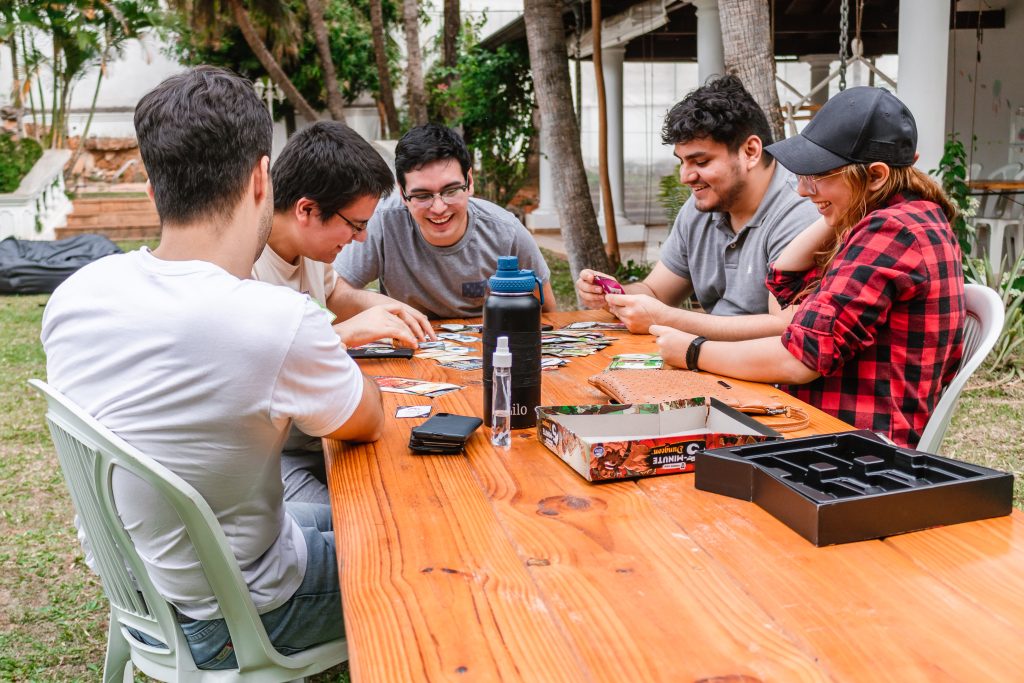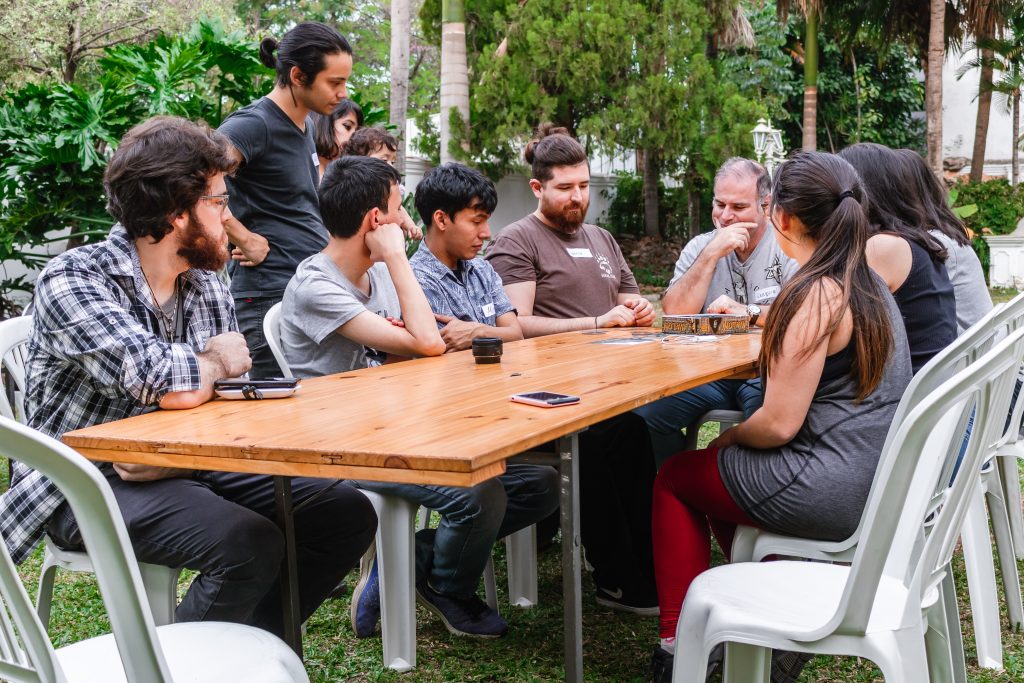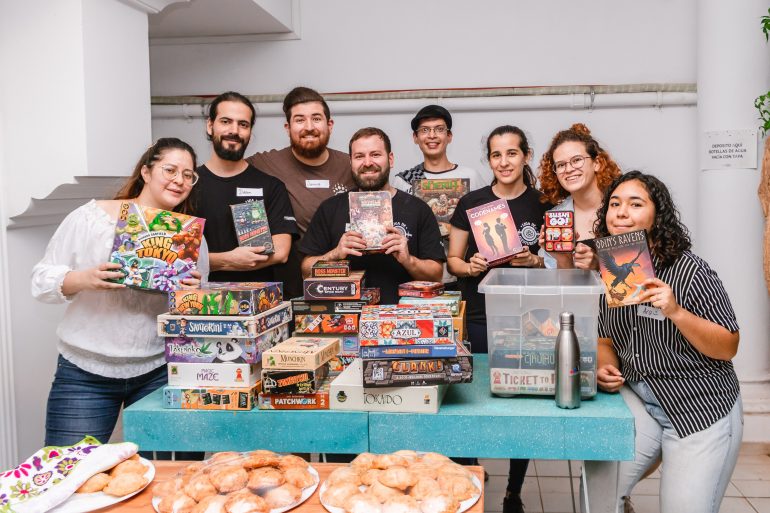The beautiful board games were right there in the shop, intricate pieces, stunning artwork, gameplay far beyond Paraguay’s traditional staples of Ludo, Goose, and Monopoly. But for Liga de Aventureros (League of Adventurers) founder Manuel Romero and his university friends, each game represented an impossible expense in their tight student budgets.
Their solution was pragmatic: pool money, buy games together, and share them amongst the group. What they did not anticipate was how this simple arrangement would eventually lead them to distribute flyers on Asunción’s streets, hoping to find others who shared their newfound passion. When 150 people showed up to their first public event, far exceeding their modest expectations, Liga de Aventureros was truly born.
Today, the organisation operates from Asunción, Paraguay’s capital, hosting monthly events at local hotels, cafés, and bars across the metropolitan area. Events run from 18:30 to 22:00 with pricing that varies by venue, typically around Gs. 20,000 (approximately US$2.50) per person.
Liga de Aventureros: Building bridges
What began as necessity became a mission to create inclusive spaces where anyone can learn tabletop games regardless of experience. Manuel positions Liga de Aventureros as a counterbalance to increasingly digitalised social interactions, deliberately creating “safe spaces” where diversity is celebrated and connections form through gameplay.
“I was raised in a world where everything was tactile, everything involved touching and moving. Nowadays everything is done through screens,” Manuel reflects. “We break this paradigm where we feel increasingly distant.”
This approach appeals particularly to international visitors familiar with established gaming cultures in Europe, the United States, Argentina, and Brazil, who often discover Liga de Aventureros through word-of-mouth or hotel recommendations.
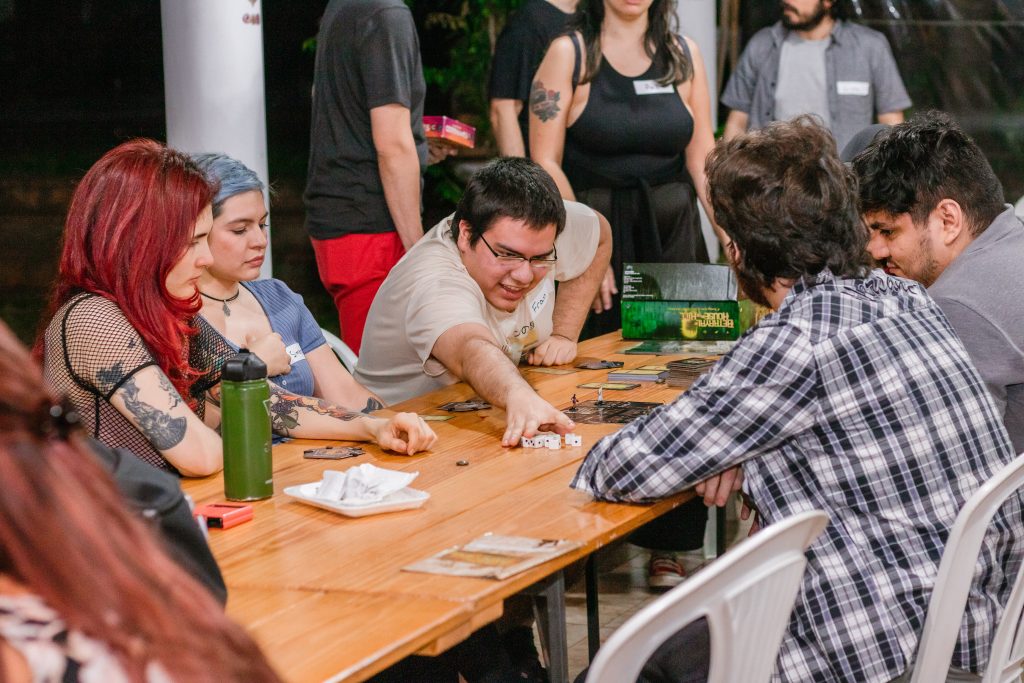
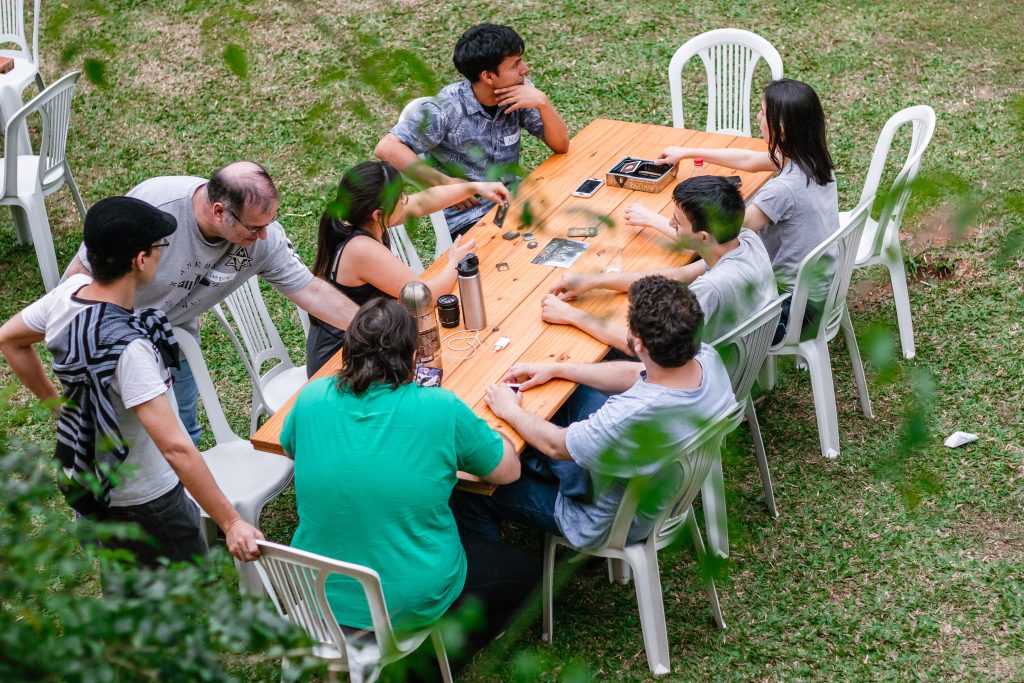
Overcoming cultural resistance
Paraguay’s gaming community faced obstacles reminiscent of the “Satanic Panic” that affected role-playing games in 1980s America. Manuel experienced this resistance when attempting to introduce Dungeons & Dragons to schools a decade ago.
“One school director told me: ‘I would love for this to happen, but parents are not yet prepared to receive Dungeons & Dragons,'” he remembers.
The cultural shift has been remarkable. That same school now hosts student-initiated Dungeons & Dragons clubs, with parents requesting Manuel’s expertise. “Today, parents are people my age, 38 years old, and they understand this is something really good, really healthy,” he observes. Popular media like Stranger Things has helped normalise the hobby globally.
Beyond entertainment, a community impact
Liga de Aventureros extends beyond recreation. The organisation has conducted educational workshops at local schools. They also teached students to create characters and develop storytelling skills through interactive gaming sessions.
Most remarkably, Manuel and his team organised gaming sessions in Paraguay’s correctional facilities in 2016 and 2017. “We brought games to create entertainment spaces for people in penitentiary conditions with minor offences.”
The organisation supports community members facing hardships, hosting fundraising events for medical expenses and sporting opportunities. “We had a boy with cancer, we did three or four events where all proceeds went to buy his medicines.”
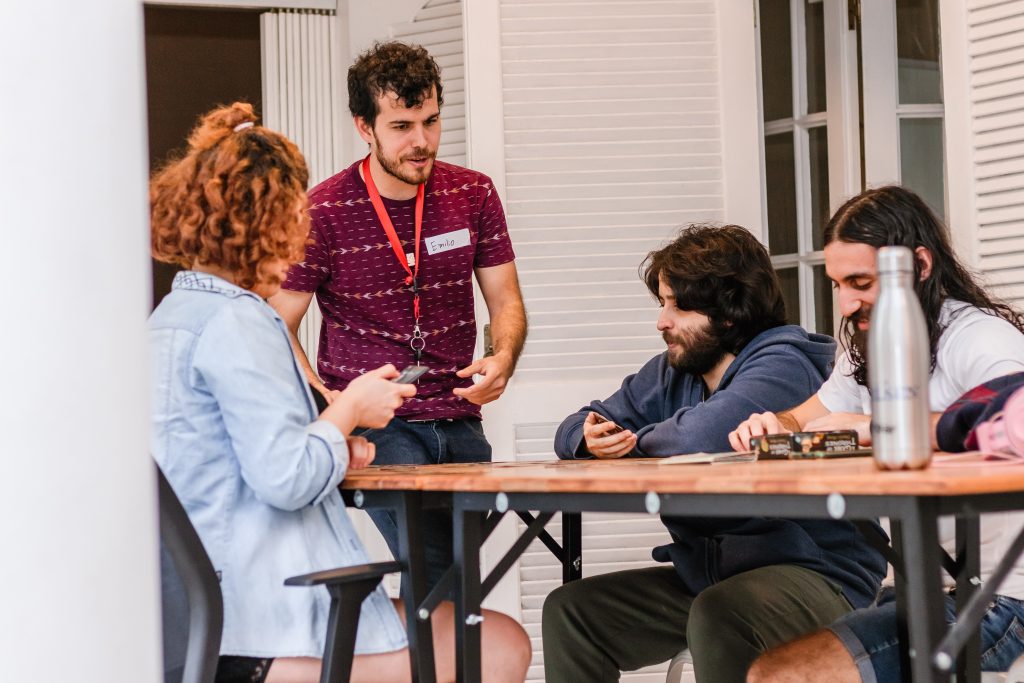
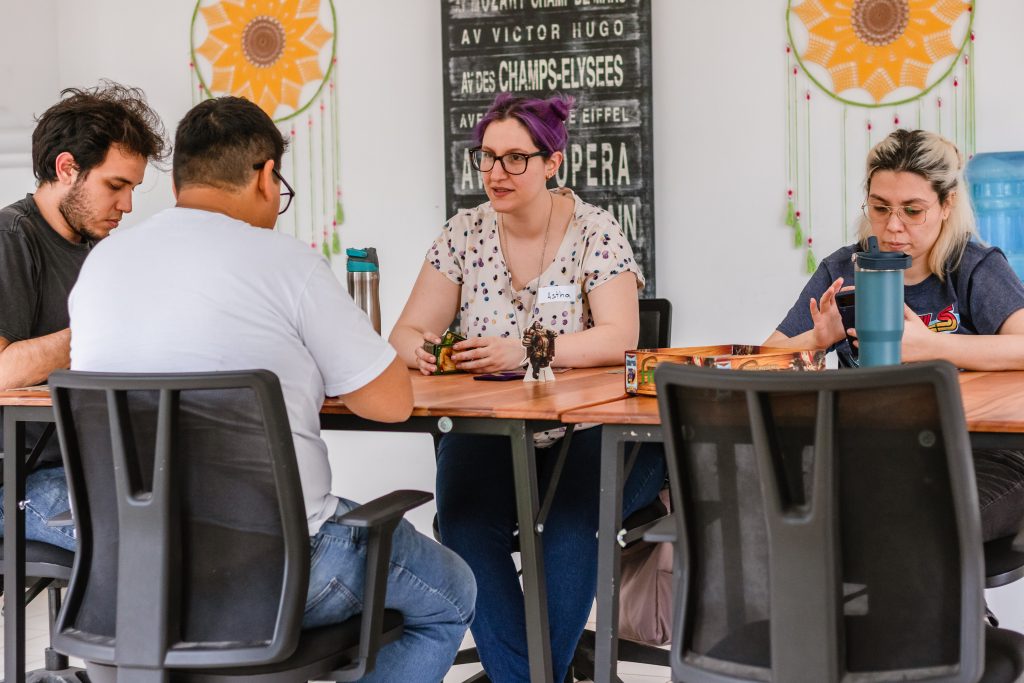
The art of game selection
Liga de Aventureros carefully curates games for different audiences. For newcomers, they recommend accessible titles like Settlers of Catan and Ticket to Ride. These games are visually appealing and mechanically simple without being frustrating.
Their collection spans strategy games like King of Tokyo and King of New York, party games such as Cards Against Humanity and Munchkin, and atmospheric experiences like Tokaido. For more complex experiences, they offer Epic Spell Wars and themed games like “Game of Thrones” alongside classic dungeon crawlers like Descent.
Role-playing games form another cornerstone, featuring systems beyond Dungeons & Dragons: Vampire: The Masquerade, New World of Darkness, Dungeon World, and Armas a Sueldo cater to different storytelling preferences.
“Games like Avalon, which incorporates deception as a core mechanic, allow participants to explore different personality aspects in safe environments.” The key is matching games to group dynamics rather than imposing complexity.
Expanding the vision
Manuel envisions expanding from monthly to bi-monthly events whilst maintaining personal attention. “What I offer is good service where people have a good experience,” he emphasises.
Liga de Aventureros‘ success reflects broader trends toward analogue entertainment and community-building. By addressing the universal need for face-to-face social interaction, they have created a model that transcends cultural boundaries whilst remaining rooted in Paraguayan hospitality.
“We seek to unite people through games,” Manuel concludes. “All games stimulate soft skills, precisely what we use to relate to other people.”
In an increasingly fragmented world, Paraguay’s League of Adventurers offers a deceptively simple solution. Pulling up a chair, pick up the dice, and discover that strangers quickly become friends when everyone is just trying to have fun.
For those interested in joining, find Liga de Aventureros on Instagram or contact Liga de Aventureros on WhatsApp.
